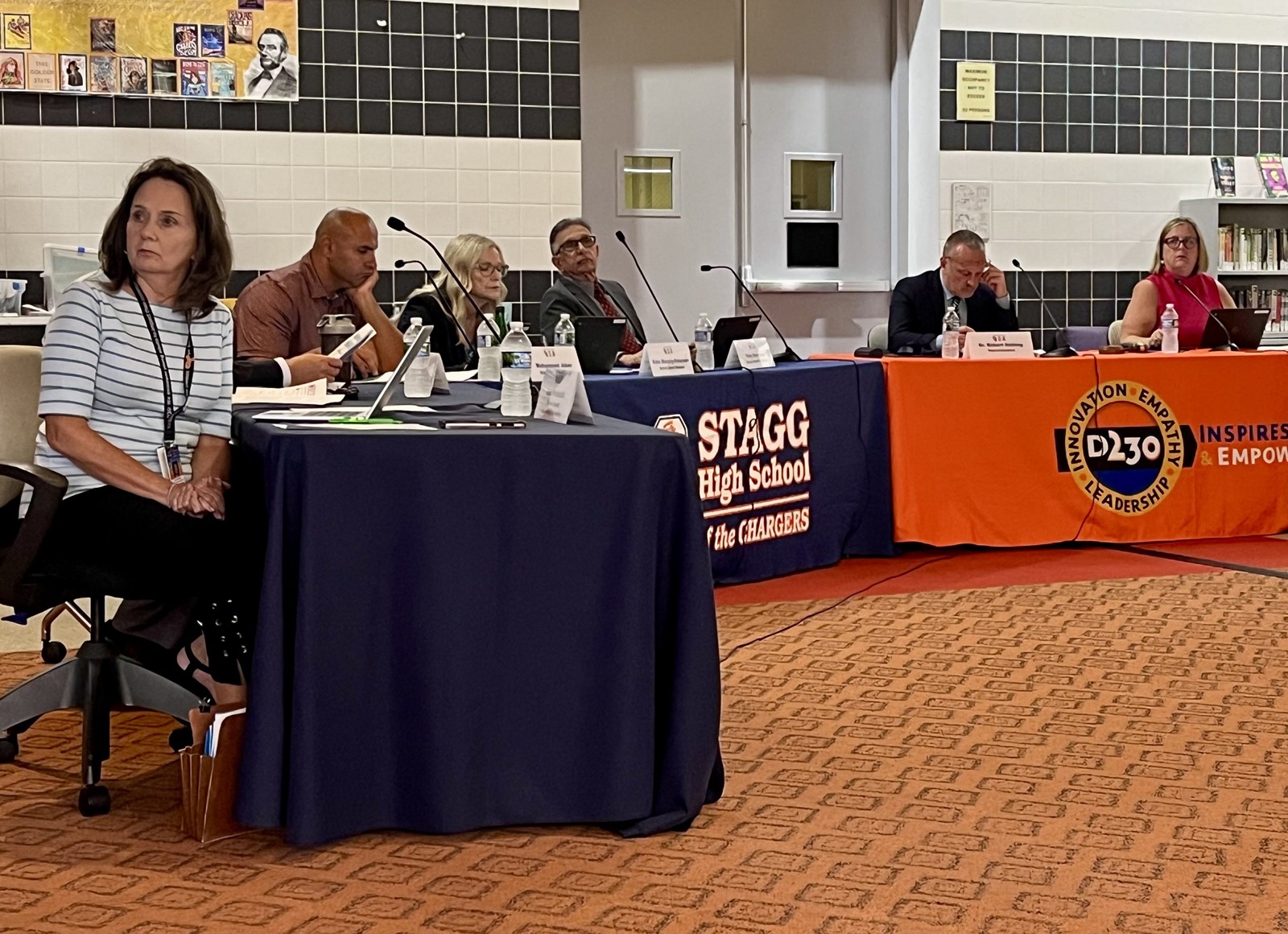
The High School District 230 Board on Thursday approved a budget, highlighted school safety measures following area social media threats and reprimanded a board member for publishing his opinions on local politics.
Board President Lynn Zeder spoke out against board member Mohammed Jaber, who criticized what he said is Orland Park Mayor Keith Pekau’s plan for three new TIF districts.
Zeder cited board policy designating the president as the board spokesperson to the media and said it prohibits board members from taking “individual action that might compromise the board or district.”
Zeder said Jaber’s interview with a local paper was “on a matter in which the board is involved with sensitive proceedings with the village.”
“While disappointed and displeased, it was not made clear that he was speaking as an individual and not for or on behalf of District 230,” Zeder said.
She later clarified in a statement to the Daily Southtown that the board does not prohibit board members from expressing their views.
“If a member chooses to speak to the media, they should do so as an individual, making it known that they don’t speak for, or on behalf of, the Board of Education,” Zeder said.
Jaber prepared a news release in which he criticized what he said are three planned TIF districts: one for the former Andrew Corporation property; one for land adjacent to the former Petey’s II restaurant; and one at the former Lincoln Mercury dealership lot on 143rd and 94th Avenue. He said that would hurt finances for the school districts, park district and the village.
“It is irresponsible to create three new TIF districts that will redirect property taxes from these four government agencies and force them to find ways to replace the lost money without fully knowing the precise financial situation of the Village of Orland Park,” Jaber said in the release.
The TIF districts are apparently in addition to a proposed new TIF District to develop the Main Street Triangle northwest of La Grange Road and 143rd Street.
Pekau did not immediately respond to questions about the three TIF districts or Jaber’s concerns with the village’s financial situation.
The board also swore in Chris Kasmer to replace Patrick O’Sullivan, who resigned last month due to moving outside the district boundaries. Kasmer, an Orland Park resident who is also president of Carpenters Local 1027, will serve until April 2025, when the position will be up for election, according to the district.
District officials unanimously approved the budget for the upcoming year, careful to explain their understanding of residents’ frustration with the schools’ role in historic property tax increases for the south suburbs. Due to a lack of state funding, District 230 receives about 90% of its funding from local taxes, district officials said.
“It’s a just a reality in the state of Illinois at this point,” John Lavelle, assistant superintendent for business services. “For many, many school districts, especially in the collar counties in the Chicagoland area, state sources haven’t changed a whole lot.”
Lavelle said District 230 is a tier 2 school district, that translates into at most 18% of new funding from the state. Federal funding supports special education departments and offers grants for specific programs.
The district ended up with a slight surplus, less than 1% of the $178 million budget, Lavelle said. The district strives to have about six months worth of operating funds available at the end of each year to prevent the interest incurred from short-term borrowing.
“We’re not looking for rate increases; we’re not looking to borrow money in the future,” Lavelle said.
He said the district will discuss levying additional funding in November.
In response to the nearby Rich Township High Schools and Park Forest-Chicago Heights District 163 going into “soft lockdowns” last week due to social media threats of violence, Superintendent Robert Nolting highlighted security measures taken at Sandburg, Andrew and Stagg high schools.
Nolting said over the past seven years, the district added security staff for after-school programs, hired three school resource officers, instituted background checks for visitors and changed the entry and exit system for students.
“These things do come at a cost, but our district I think has done a great job realizing that that cost is not worth making our schools unsafe,” Nolting said.
ostevens@chicagotribune .com


 PREVIOUS ARTICLE
PREVIOUS ARTICLE
